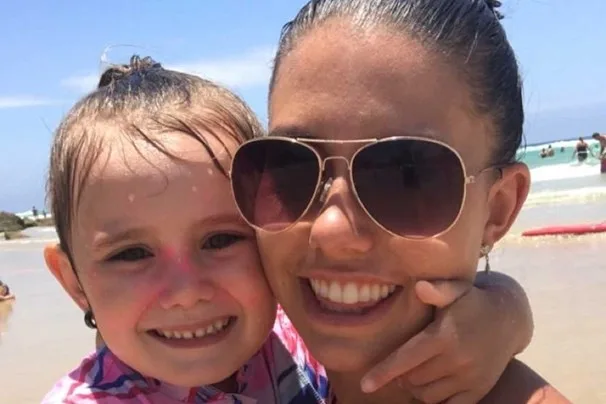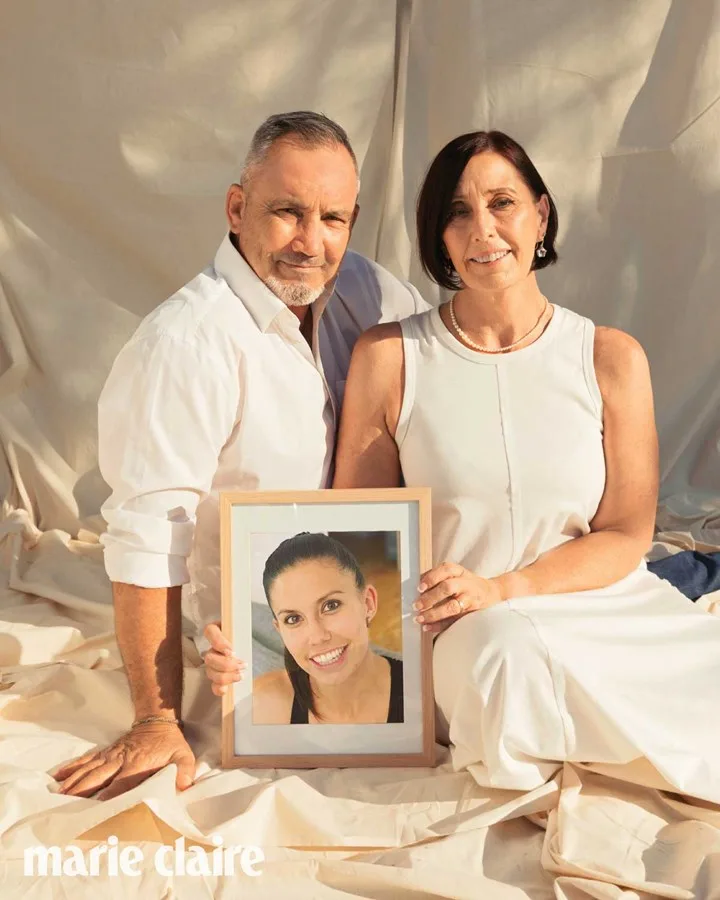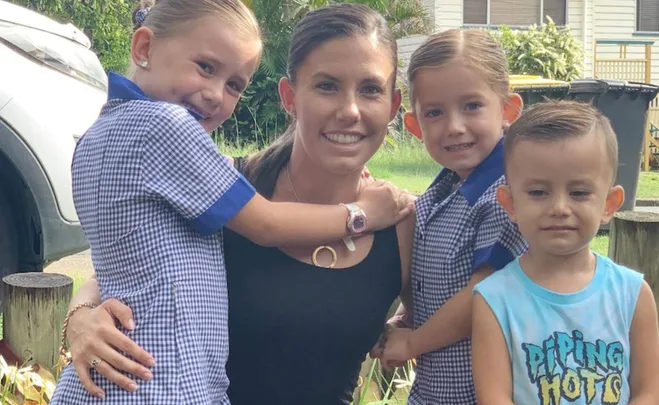Content warning: this story contains graphic depictions of domestic violence.
Every agency who dealt with Hannah Clarke before her death failed to recognise the “extreme risk” she would be killed, Queensland deputy state coroner Jane Bentley has found — but said it was unlikely her death could have been prevented.
Hannah and her three children Aaliyah, 6, Laianah, 4, and Trey, 3 were murdered in February 2020 by her estranged husband, Rowan Baxter, as she was doing the morning school run.
As Hannah lay dying, she told first responders how Baxter had jumped into her car, thrown petrol around, and set it alight. All three children died in the blaze, while Hannah died later in hospital from her wounds. Baxter died from a self-inflicted wounds.
Bentley praised Hannah’s “astounding bravery” in informing police of Baxter’s actions as she lay dying.
She also described Baxter as “a master of manipulation”, who was not mentally ill but intent on murder.
“I find it unlikely that any further actions taken by police officers, service providers, friends or family members could have stopped Baxter from ultimately executing his murderous plans,” she added.
The inquest was shown CCTV footage of Baxter buying zip ties, cleaning fluid and fuel days before the murders. He also bought three Kinder Surprises, which are believed to have been for his children.
Bentley said it was of “great concern” that even after Baxter killed Hannah and her children, friends and family were reporting to police that he was “loved his wife and children, he was a great father, and that his actions were somehow excused or explained by the fact that he was losing everything, was being victimised by the process, and that Hannah should not have kept his children from him”.

The hearing was told that Baxter may have initially intended to kidnap his children (hence the chocolates) and burn Hannah to death, but moved to “Plan B” when Hannah called to a bystander for help.
“The truth is that Hannah, who knew him best, was initially in favour of him having contact with their children but became fearful of their safety, as she correctly perceived that he was becoming more dangerous,” Bentley said.
“Hannah’s expressions of fear were not to assist her in the custody process as was alleged by Baxter and some of his friends.
“Her fears were genuine and realistic and confirmed in the very worst way.”
What has been recommended in the wake of Hannah Clarke’s death?
Baxter had no criminal history and had not been violent prior to the murders, which probably led to a failure in his crime being prevented, Bentley said.
However, she said “immediate attention” must be made to police training to prevent similar deaths occurring, offering a number of key recommendations.
Those include a five-day face-to-face training program for all specialist domestic violence police officers as a “matter of urgency”, as well as mandatory training for all officers.
She also recommended the state government urgently provide men’s behaviour change programs in prisons and communities.

Hannah’s parents are satisfied with the outcome
Hannah’s parents Sue and Lloyd watched Bentley’s remarks via a live stream, and said they were happy with the findings — not just for Queensland, but all of Australia.
“It’s not just a Queensland problem,” Ms Clarke said.
“With more education people will understand that children are at risk as well,” she said.
Mr Clarke said he didn’t think Baxter realised how much Hannah would fight back.
“I think he underestimated how much a mother will fight,” he said.
“He didn’t love the children like she did.”
1800 Respect: 1800 737 732
Women’s Crisis Line: 1800 811 811
Men’s Referral Service: 1300 789 978
Lifeline: 131 113










